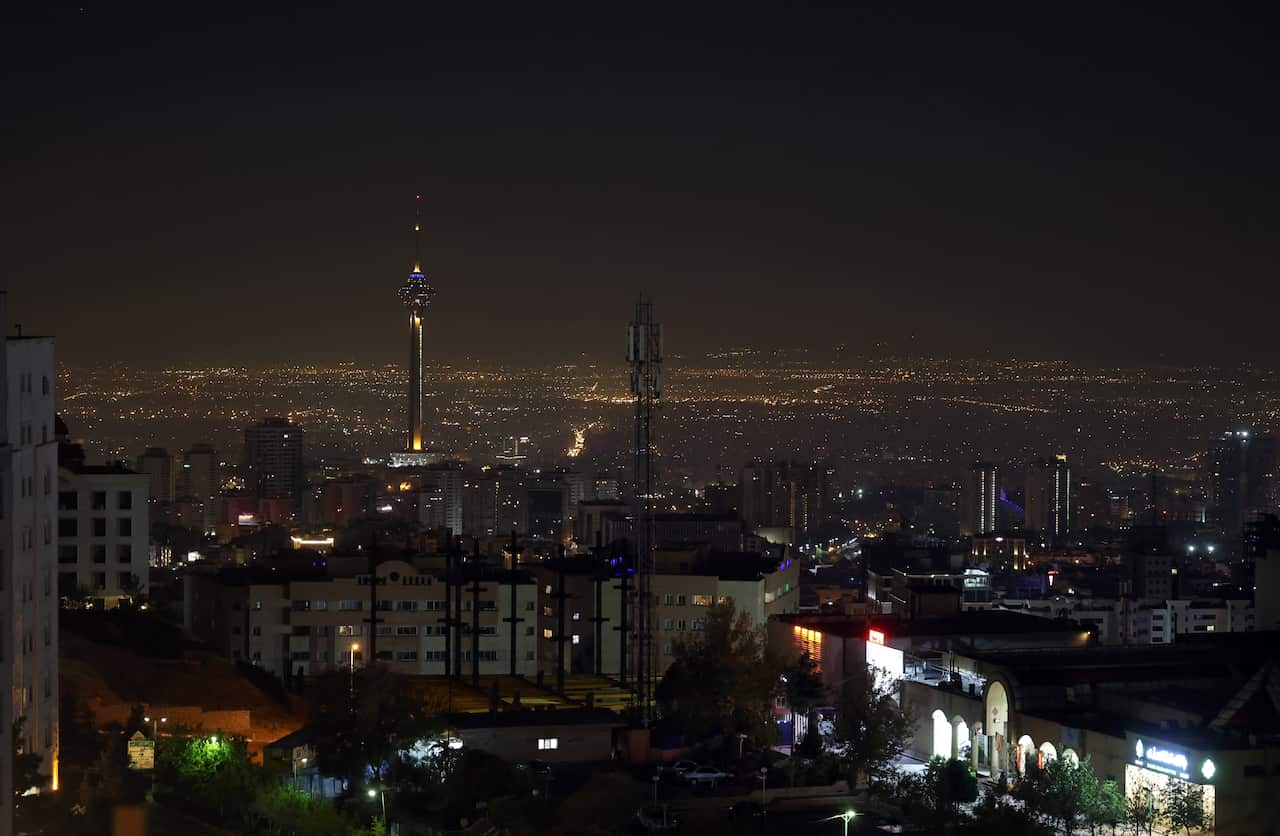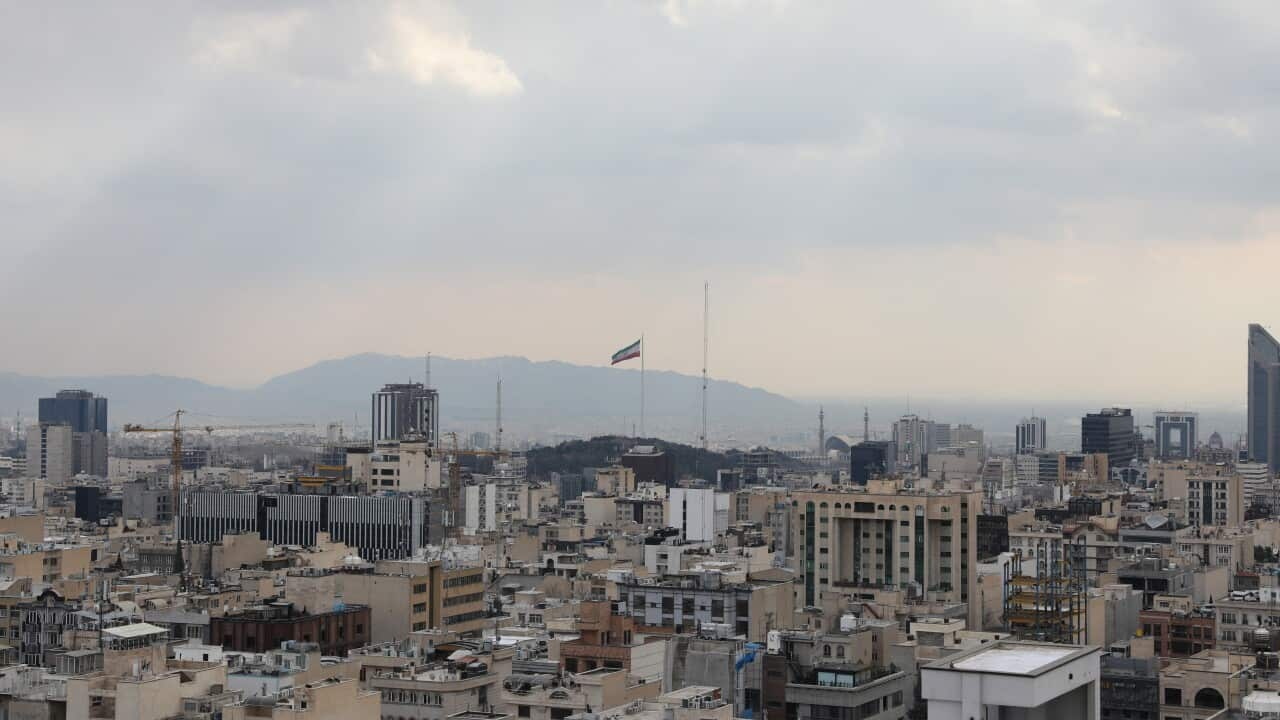Israel’s military says it has concluded airstrikes on Iran that hit military bases and missile sites in retaliation for the Islamic republic’s attacks, warning it would “pay a heavy price” if it responds.
The Israeli military said its strikes hit Iran’s missile manufacturing facilities, missile arrays and other systems in several regions.
Iran confirmed an Israeli attack had targeted military sites in the capital Tehran and other parts of the country, but said it had caused “limited damage”. The armed forces said later two soldiers were killed in the strikes.
“The army of the Islamic Republic of Iran lost two of its fighters during the night when they faced projectiles from the criminal Zionist regime in defence of its territory,” according to a statement carried by Iranian state television.
Israel had vowed a response to , the second-ever direct attack by the Islamic republic.
The rapid escalation of violence has heightened fears across the region and beyond of a wider war, pitting Israel against Iran and the allies it dubs the “axis of resistance” on multiple fronts.
“The Israel Defence Forces has fulfilled its mission,” Israeli military spokesperson rear admiral Daniel Hagari said in a video message posted to X on Saturday afternoon (AEST).
“If the regime in Iran were to make the mistake of beginning a new round of escalation we will be obligated to respond.”
He warned that any country that threatened Israel and sought to escalate conflict in the region would “pay a heavy price”.
A semi-official Iranian news agency vowed a “proportional reaction” to Israeli moves against Tehran.
Israeli airforce ‘struck missile manufacturing facilities’
Iranian media reported multiple explosions over several hours in the capital and at nearby military bases, starting shortly after 2am on Friday (9.30am AEDT).
Before dawn, Israel’s public broadcaster said three waves of strikes had been completed and that the operation was over.
“Based on intelligence, IAF (air force) aircraft struck missile manufacturing facilities used to produce the missiles that Iran fired at the State of Israel over the last year,” Israel’s military said in a statement.
“Simultaneously, the IDF (military) struck surface-to-air missile arrays and additional Iranian aerial capabilities,” the army said.
A view of Tehran in the early hours of Saturday. Source: AAP, EPA / Abedin Taherkenareh
Iran said its air defence system successfully countered Israel’s attacks on military targets in the provinces of Tehran, Khuzestan and Ilam with “limited damage” to some locations.
In a statement announcing the operation on Saturday morning, the Israeli military said it was conducting “precise strikes on military targets in Iran”, in response to what it said were “months of continuous attacks from the regime in Iran”.
Iranian authorities have repeatedly warned Israel against any attack.
“Iran reserves the right to respond to any aggression, and there is no doubt that Israel will face a proportional reaction for any action it takes,” the semi-official Tasnim news agency said on Saturday, citing sources.
US was notified of attack
Israel notified the United States before its strikes, but Washington was not involved in the operation, a US official told the Reuters news agency.
A senior official to US President Joe Biden said Israel’s “targeted and proportional strikes” should be the end of direct exchange of fire between the two countries, but the US was fully prepared to once again defend Israel if Iran chose to respond.
The US has multiple direct and indirect channels of communication with Iran where it has made its position clear, the official said on condition of anonymity.
US secretary of state Antony Blinken — in the Middle East for another attempt to broker a peace deal amid , and its — said on Wednesday Israel’s retaliation should not lead to greater escalation.
Growing tensions in the Middle East
Iran said 90 per cent of its missiles successfully hit their target in Israel, although Israel said most of the missiles were successfully intercepted.
Tehran said this attack was in response to Israeli killings of militant leaders and aggression in Lebanon against Hezbollah and in the .
. The Iranian government and Hamas accused Israel of the assassination, but Israel has not claimed direct responsibility.
In late September, Hassan Nasrallah, leader of the Lebanese militant and political group Hezbollah, alongside Abbas Nilforoushan, deputy commander of operations for the Iranian Revolutionary Guards.
More recently, Israel’s military , considered to be one of the masterminds behind last year’s October 7 attack on southern Israel led by the militant group that sparked the ongoing .
This has all followed an attack led by Hamas — Gaza’s militant rulers — on southern Israel on 7 October last year.
That attack killed more than 1,200 people and sparked Israel’s bombardment of Gaza. That has killed 42,847 people, according to the Palestinian enclave’s health ministry, which the United Nations considers reliable.
Israel has since broadened the scope of its operations to Lebanon, vowing to secure its northern border after nearly a year of attacks launched by Hezbollah in support of Hamas.
Both Hezbollah and Hamas are allies of Iran.
Explosions in Iran earlier this year
In April, that came after Iran launched a barrage of more than 300 drones and missiles in its first-ever direct assault on Israel’s soil.
Iran’s Fars news agency at the time reported there were “three explosions” near an army airbase, while a spokesperson for the country’s space agency said several drones had been shot down, adding there were no reports of a missile attack.
That incident came after Iran blamed Israel for an attack airstrike on its embassy in Damascus, Syria, which killed two of its generals and five military advisers.
Israel did not claim responsibility for the attack.

